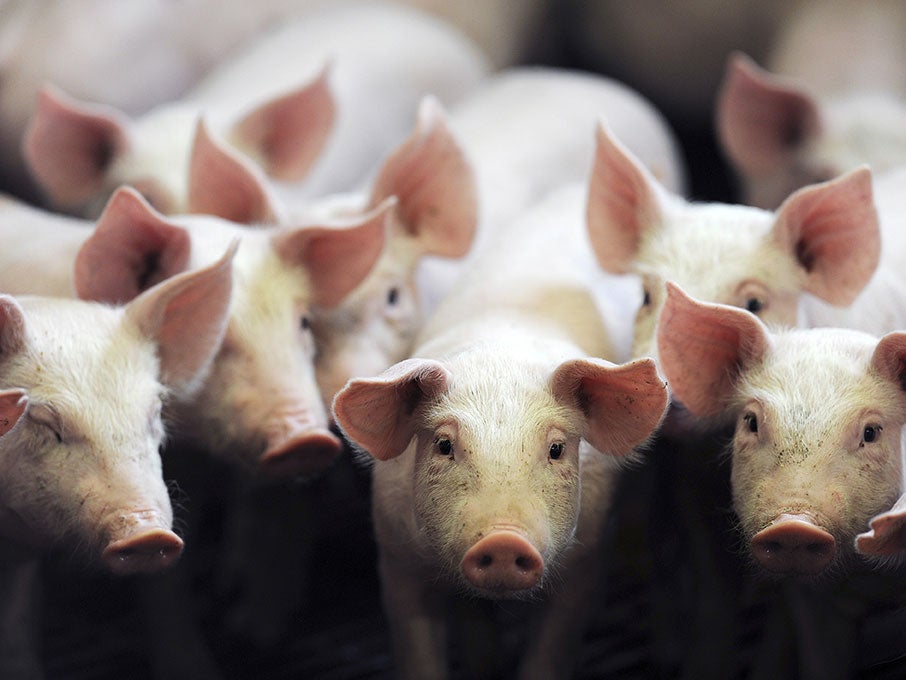MRSA strain found in pork sold by British supermarkets
The strain CC398 was found in nine pork products tested by the Guardian

Your support helps us to tell the story
From reproductive rights to climate change to Big Tech, The Independent is on the ground when the story is developing. Whether it's investigating the financials of Elon Musk's pro-Trump PAC or producing our latest documentary, 'The A Word', which shines a light on the American women fighting for reproductive rights, we know how important it is to parse out the facts from the messaging.
At such a critical moment in US history, we need reporters on the ground. Your donation allows us to keep sending journalists to speak to both sides of the story.
The Independent is trusted by Americans across the entire political spectrum. And unlike many other quality news outlets, we choose not to lock Americans out of our reporting and analysis with paywalls. We believe quality journalism should be available to everyone, paid for by those who can afford it.
Your support makes all the difference.A strain of MRSA has been identified in pork products sold by supermarkets in the UK.
CC398, a strain of the superbug which originates in animals, was found in pork sold in Sainsbury’s, Asda, Tesco and the Co-Operative, according to an investigation by the Guardian.
MRSA is resistant to many antibiotics and CC398 is linked to factory farms that overuse them.
The Guardian tested 100 pork products from Denmark, Britain and Ireland, including pork chops, bacon and gammon. Of them, nine were contaminated with CC398 – one from Ireland and eight from Denmark.
MRSA is a problem for Danish pig farms and in 2014, the Local reported that two out of three farms in the country had the bug.
In response to the investigation, Sainsbury’s said its products were "routinely tested" for a range of microorganisms, adding that CC398 could be killed through cooking. The Co-Operative said it was "investigating the findings" with their Danish bacon supplier. Tesco declined to comment according to the Guardian.
Asda said it took “concerns over food safety seriously” and worked closely with their suppliers to make sure “secure measures [were] in place to guard against any potential issues”.
The Food Standards Agency said: “There are no known cases of people contracting LA-MRSA CC398 from eating meat in the UK. Even on the continent where LA-MRSA CC398 is much more prevalent there is no clear evidence of food being linked to infection in people. Previous research has found LA-MRSA in meat on sale in the UK and we are working with experts from across government to better understand the potential risk to public health.”
According to the Alliance to Save Our Antibiotics, around 45 per cent of antibiotics used in the UK were used in animals.
“This is fuelling the emergence of bacteria which can pass to humans through contact with animals and raw meat, or through the environment,” the Alliance said on their website.
They said they were calling on “major UK retailers to reduce antibiotics in their meat supply chains”.
Join our commenting forum
Join thought-provoking conversations, follow other Independent readers and see their replies
Comments